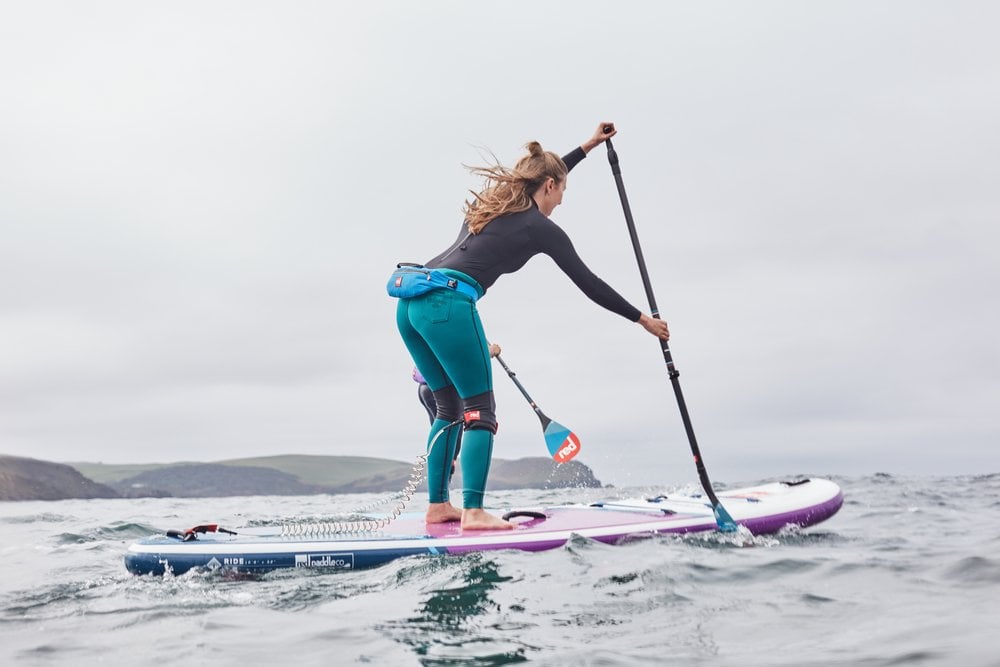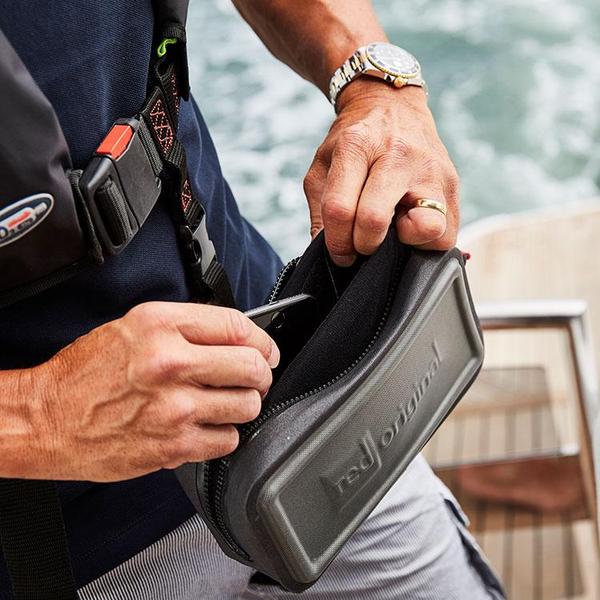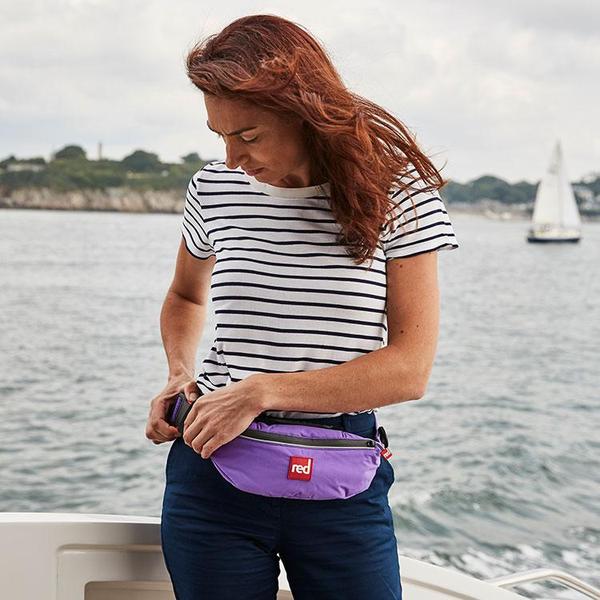How To Paddleboard In The Sea
Return to blog
12 Essential Paddle Boarding Safety Tips For Choppy Seas
Posted by Luke Green
Paddle boarding on choppy seas can be a lot more than challenging than SUPing in calm waters. So, before yous head out on your next SUP adventure in the body of water, make sure to recall the following paddle boarding prophylactic tips:
Programme Your Paddle
Some of the most important paddle boarding safety tips involve training and planning. Where possible, you should ever attempt to launch in an area where there is lifeguard cover, however when this isn't possible, there are a few precautions you can accept in lodge to go on yourself rubber. Brand sure your entry and leave points are clear and that there are no additional hazards, such equally dangerous rocky areas. You should also accept into account traffic from boats and other watercraft as this can present its own hazards, and increase choppiness on the water.
Check The Tides Before You Go
One of the virtually of import paddle boarding safety tips for choppy seas is to bank check the atmospheric condition forecast and tide times in detail earlier you lot become. Y'all can cheque the tide times and weather forecasts using whatsoever number of available apps, and almost phones these days provide at least some of these details as standard. Educate yourself on how to spot a rip electric current and if you lot're e'er in uncertainty virtually the weather condition beingness also choppy or unsafe, don't go out.
Double Check Your Equipment
Another essential paddle boarding safety tip is to ensure all your kit is in good status before y'all go out abode and earlier you launch onto the water. Brand certain your inflatable SUP is pumped upwards to the recommended PSI and that your paddle is put together correctly. You'll too need to ensure that you're wearing the correct wearable for the conditions. We would recommend wearing a wetsuit for paddle boarding in the ocean. If you fall in, this will keep you warm whilst providing y'all with actress buoyancy.
Paddle With A Friend
E'er go paddle boarding with a Friend, rather than on your own. Not only does this make the experience a lot more than fun, it will also keep you lot a lot safer. Paddling with someone else ways you can look out for each other and call for help if ane of you gets into trouble. Another important paddle boarding safety tip is to tell someone on country where y'all're headed and when you lot wait to be back, and then that they know when to telephone call for assistance if necessary.
Bring A Telephone
In instance of an emergency, information technology's also a sensible idea to carry a phone with you. This volition permit you to call 999 and inquire for the coastguard, in the event that you do meet trouble. You can store your phone in our waterproof dry out pouch that attaches easily to your board or waist, making it easily attainable in the event of an emergency. The pouch features a YKK Aquaseal aught meaning you can be confident it's 100% waterproof, and will keep the contents prophylactic and dry.
Wear A Personal Flotation Device (PFD)
If you are very experienced at paddle boarding and body of water pond, as a minimum safety requirement you should wear a waist chugalug PFD. This attaches around your waist making information technology hands attainable, should yous need to inflate it quickly. When paddling in very choppy conditions, you lot should consider wearing a buoyancy aid.
Wearable A Waist Belt Leash
Another essential paddle boarding safety tip when heading out to the sea, is to wear a leash. We would recommend using our coiled SUP leash with a quick release waist belt. The leash attaches to the waist belt, allowing you to detach yourself rapidly from your SUP without needing to reach down to your ankles.
Appraise Your Feel Level
You should just go paddle boarding in choppy seas if y'all are experienced. Information technology'south certainly not the right environment for beginners to attempt out their skills for the first time. Be honest about your experience and only head out to the body of water if you lot feel confident enough and know that your paddling and sea pond skills are potent plenty.
Avoid Offshore Wind
One of the almost of import paddle boarding condom tips for SUPing in the sea, is to avoid offshore wind. Offshore winds can speedily accident your paddle board out to sea, which tin arrive extremely tiring and hard to paddle back to shore.
Cheque Your Position & Technique
Many of our paddle boarding safety tips for choppy seas involve preparation and planning, however it's also important to maintain SUP safety once you're out on the water by maintaining strong technique. Make sure your feet are shoulder width apart over the middle of the lath, with your weight evenly distributed. You desire to keep your knees slightly bent to stupor blot any waves, with your back directly.
However, if the air current is particularly strong, you may want to bring your body weight slightly frontwards to maintain your balance. You too want to make more powerful strokes, so that you don't waste your energy. Continue your back straight and knees bent, with your cadre engaged, and make sure to fully submerge the paddle blade with each stroke. If you're paddling into the wind, it'due south more effective to do short, but strong strokes.
Stay Calm & Float To Live
By following the necessary paddle boarding safety tips we've mentioned, hopefully you shouldn't run into any trouble. However, in the unlikely event that y'all exercise meet trouble and become separated from your lath, stay calm and float on your back to maintain your energy until you tin phone call for help.
P.L.O.T Your Paddle
If you're e'er in doubt about the main paddle boarding safety tips, remember to P.L.O.T your paddle…
- Personal Flotation Device (or buoyancy aid)
- Leash (never get out without a leash, coiled leash with waistbelt leash for choppy seas)
- Offshore Wind (if the air current is blowing from the beach out to the ocean, don't go out)
- Telephone (acquit your telephone in a waterproof pouch in case of emergencies)
Source: https://red-equipment.co.uk/blogs/sup-life/12-essential-paddle-boarding-safety-tips-for-choppy-seas




0 Response to "How To Paddleboard In The Sea"
Post a Comment